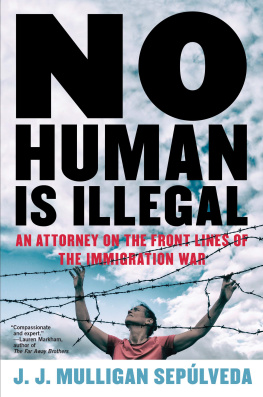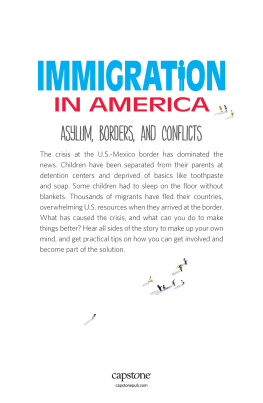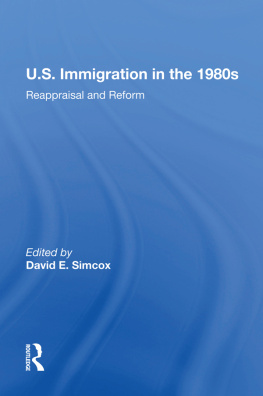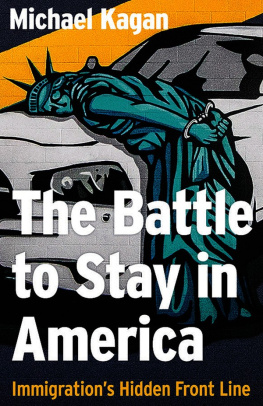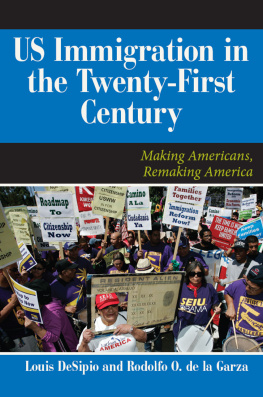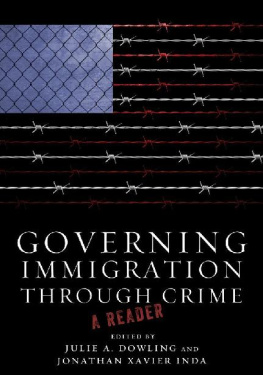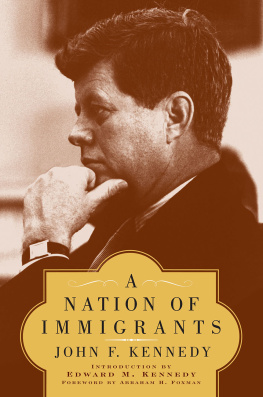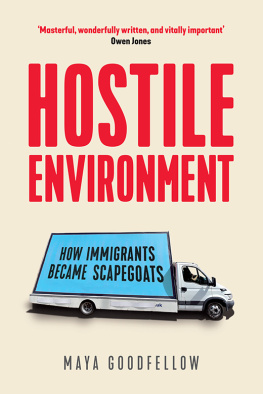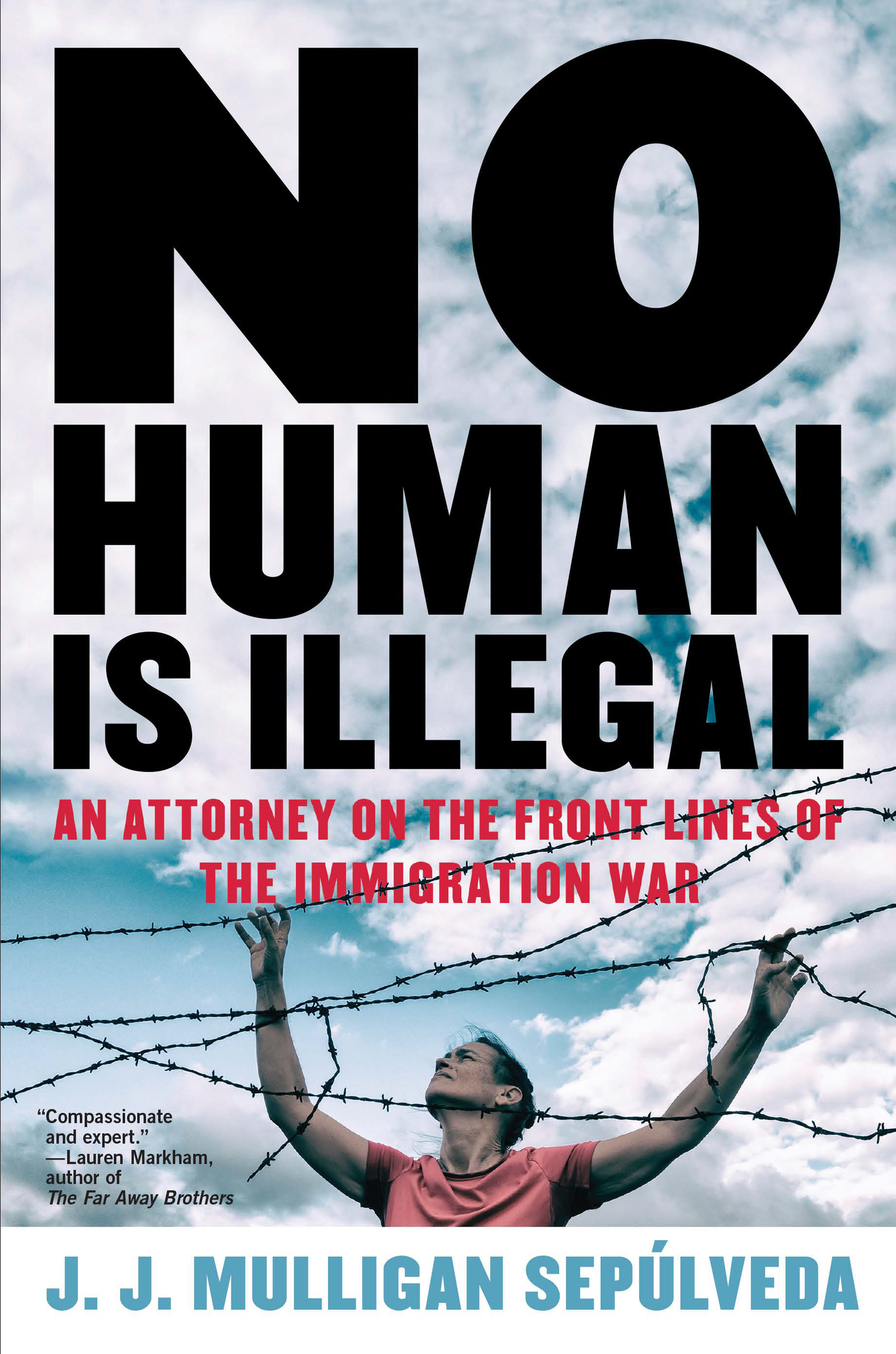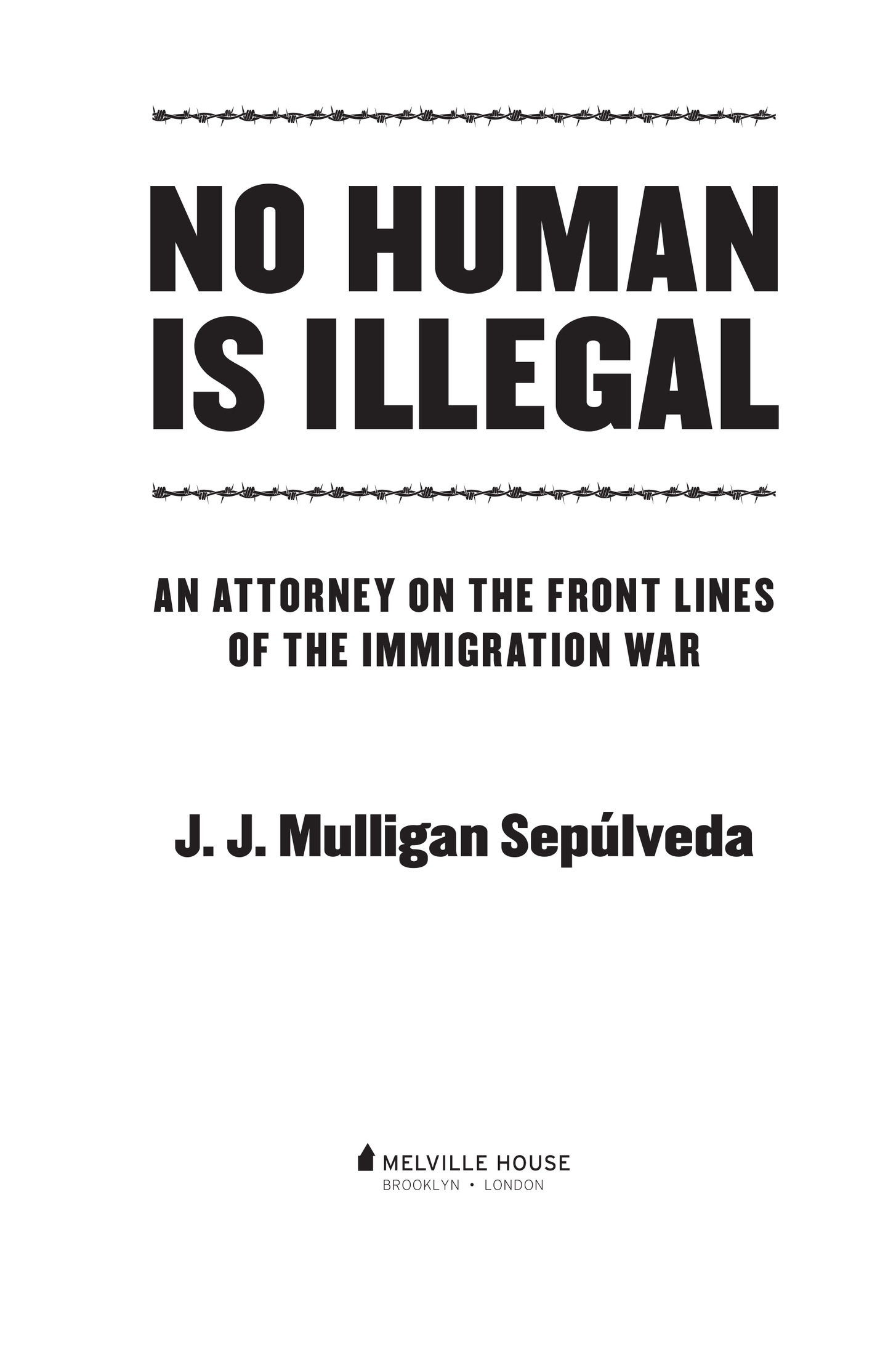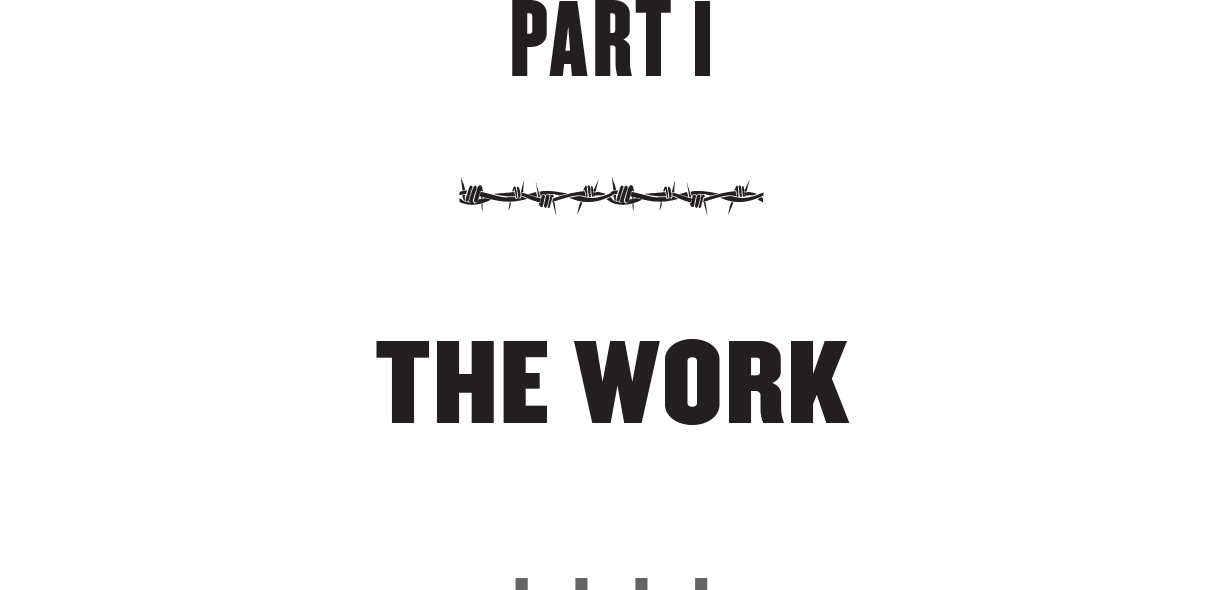Copyright J. J. Mulligan Seplveda, 2018
Against the ruin of the world, there is only one defensethe creative act.
INTRODUCTION
Francisco leaned against the wall, his cowboy boots crossed one over the other. We were in a small room with no windows, packed tight with immigrants, two of whom had brought their children. ICE (U.S. Immigration and Customs Enforcement) had ordered Francisco to report to their Enforcement and Removal office that day, and instead of waiting at his house for them to show up anyway during an early-morning raid, he had obliged. In just a few minutes, he would go into custody and thereafter be detained in a detention center nearby, while a team of attorneys rushed to file an appeal for him. He had been in the United States for nineteen years. For the last four years he had been in and out of immigration courtrooms, detained, released on bond, and on this day back into detention, all for a minor offense and a major misunderstanding.
He told me, when we met at the caf across the street before walking over, that he had un pie en la frontera, y uno aqui, a New Age, immigrant riff on the British axiom one foot in the grave.
As an immigration lawyer, that is the reality of who we work with and what they experience, a split lifeoften they are not fully here, but nor are they there. With Donald Trump as president, this experience has expanded such that the question of confinement and deportation now hangs over every immigrant like a guillotine. ICE conducts raids with impunity, un-documented migrants are held in prisonlike detention centers, their fates left in the hands of biased judges and interview officers, and children are being separated from their parents, only to be left orphaned. For the American Dream, the flag flies at half-mast.
Sadly, Trump is only worsening issues ongoing from the Obama administration, which Obama had in turn exacerbated from the Bush administration, and so on. That Trump is possibly the most anti-immigrant president we have ever had does not nullify the countrys deeper, systemic issues that Trump has thrived on. To be clear, Donald Trump has not rewritten the immigration laws; he did not create ICE; and he certainly did not invent racism or xenophobia. He is not the first president to ban certain immigrants from entering this country, and he is not the first president to separate families. Whether he is the last to do these things is up to us.
And so while this book is dedicated to immigration lawyers and the work that we do, it is also about our response, as a nation, to these challenges.
I wrote this book because I wanted people to know what it was like to be on the front lines of the immigration war, behind the headlines and at a human level. As the son of a Chilean immigrant who left her country during the Pinochet regime, I empathize with people who want to escape the cruel existences of their native countries for the promising possibilities of an adopted home. This book is for those immigrants who believe the United States could offer them a better life and for those who need to escape one much worse. It depicts many of the journeys that are now required to immigrate, with militarized borders and national policies increasingly hostile to immigrants: across the sea in makeshift rafts, through the desert on foot, aboard a menacing train, hidden in crates, through bombed-out war zones, a thousand sleepless nights in camps. To undertake these perilous journeys, people must be even more desperate to leave than they are hopeful to arrive.
My narrative was formed by experiences that will remain with me for the rest of my lifeof cutting my teeth in New York Citys immigration court system; of defending immigrants interred at border detention centers; of volunteering at JFK during Trumps travel ban; of traveling to Spain on a Fulbright to study the European refugee crisis; and of helping undocumented teenage boys who are savagely mistreated in California detention facilities. I owe much to my familymy wife, an immigrant to the United States herself, most of allwhich has allowed me to pursue this career path that has taken us from coast to coast and to Europe and back. Along the way, I do my best to make immigration law, that bureaucratic morass that adjudicates who is allowed to stay in this country and who is forced to leave, digestible. While the book may be dedicated to immigration lawyers, it is also for everyone to understand the work that we do and the personal and emotional toll it can take, which, while never approximating what our clients suffer, is nonetheless intertwined and often inseparable. Indeed, this book began entirely as a therapeutic exercise in coping with vicarious trauma; to be able to tell this story as well as protect my sources, I have obscured the identities of some of my clients.
This book, like our jobs as immigration lawyers, lies at the intersection of the legal system and immigrant lives. It comes at a time when who we say we are as a country and what we do to the people who most need America and its Dream is in jeopardy. It is also but one story among the countless of those who have made it their mission to help others live their lives in this country, many of whom are themselves immigrants or first generation. Without humanity, laws are just words that set out minimum standards. Without humanity, the United States can no longer carry the torch of the free world. This book is for those who refuse to let that flame die.
I dont consider myself a real lawyer. Im not a lawyer in the sense that the better job I do, the more money I get from my client. Im just trying to helpYou can change a few things. But not much progress is being made. There are about two thousand of us in the country. The legislatures are not controlled by us. For every law we have declared unconstitutional, they write five more. For every step we make, were pushed back four. Some days Im optimistic. Other days
Philip da Vinci, from Studs Terkels Working
It began with an intake.
This was where I would interview immigrant youth seeking relief from deportation and looking to be put on a path toward lawful status. The intake was only the initial meeting, but like being at an interview for a life-changing job, the immigrant youth would often be nervous, scared, shy, or uncertain. They believed that there were right answers to the questions I asked. And they were not wrong: certain answers would qualify them for relief, while others would not. Because I needed to be able to back up their information, it didnt serve them to lie to me or to change the facts or circumstances of their lives, and therefore their answers needed to be answered truthfully. That, I would assure them, was the only right answer.

